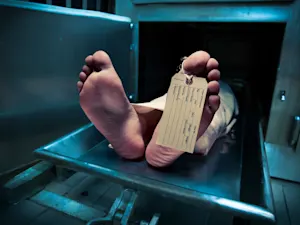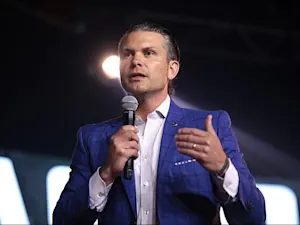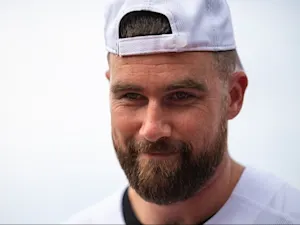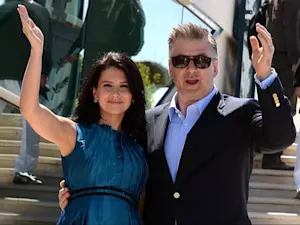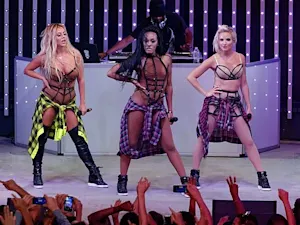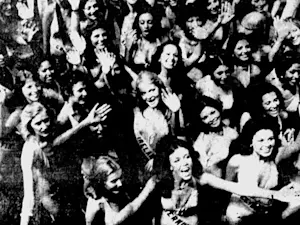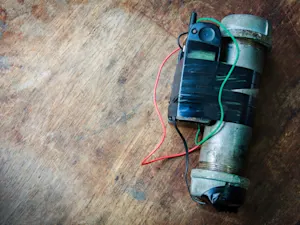
Judge Cuts Off Opening Statement of Suspect in Trump's Attempted Assassination
Ryan Wesley Routh being detained after being the primary suspect of Donald Trump's second assassination attempt at the Trump International Golf Club on September 15th, 2024. Photo courtesy of Martin County Sheriff's Office. Public domain.
In Fort Pierce, Florida, the trial of 59-year-old Ryan Wesley Routh began on September 11, 2025, marking a significant moment in a nation grappling with escalating political violence. Routh stands accused of attempting to assassinate President Donald Trump at a Florida golf club in September 2024, a case that has drawn intense public and media attention. The trial's opening day came just one day after the shocking shooting death of Charlie Kirk, a 31-year-old conservative activist, during a speaking event in Utah. This striking coincidence highlights the fraught atmosphere surrounding political discourse and security in the U.S. today.
A Nation on Edge: The Timing of Two High-Profile Events
The near-simultaneous occurrence of Routh's trial and Kirk's death underscores a country deeply unsettled by violence linked to political figures and ideologies. Kirk, known for founding the conservative advocacy group Turning Point USA, was fatally shot while engaging with supporters at Utah Valley University. His death sent ripples through political circles and social media, with President Trump publicly mourning the loss and praising Kirk's connection with young Americans.
Just 24 hours later, the courtroom in Fort Pierce opened to hear the case against Routh, who allegedly planned to kill Trump during the 2024 presidential campaign. The proximity of these events in time and their connection to prominent conservative figures have fueled public curiosity and concern about the nature and frequency of politically motivated violence in the U.S. The juxtaposition invites reflection on how threats to public figures are evolving and how the justice system is responding.
The Charges and Stakes in Routh's Trial
Ryan Wesley Routh faces five federal charges, including attempted assassination of a major presidential candidate, assaulting a federal officer, possession of a firearm by a felon, and possession of a firearm with an obliterated serial number. He has pleaded not guilty. If convicted, he could spend the rest of his life in prison. The gravity of these charges reflects the seriousness with which the federal government treats threats against political leaders, especially in the volatile context of a presidential election.
Routh's case is particularly unusual because he has chosen to represent himself, though standby counsel is assisting him with procedural and technical matters. This decision has already led to courtroom drama. During his opening statement, Routh veered off course, delivering a philosophical and emotional monologue rather than focusing on the evidence. He spoke about human evolution, nonviolence, and historical figures like Adolf Hitler and Vladimir Putin, which prompted U.S. District Judge Aileen Cannon to repeatedly interrupt and eventually cut off his remarks. The judge, a Trump appointee known for her firm courtroom management, admonished Routh for making a mockery of the proceedings and excused the jury while addressing his behavior privately.
The Prosecution's Case: A Carefully Crafted Plot
The prosecution, led by Assistant U.S. Attorney John Shipley Jr., presented a starkly different narrative. Shipley described Routh's actions as a deliberate and deadly plot to prevent Trump from being elected president. According to the prosecution, Routh meticulously planned the assassination attempt over several weeks, traveling from Hawaii to Florida and scouting Trump's golf course multiple times.
Evidence presented includes mobile phone data, security footage, a handwritten note by Routh expressing his intent to kill Trump, and witness testimony from Secret Service agents and civilians. Notably, Routh used aliases such as "John White" and "John Smith," accorinding to CNN, and employed encrypted platforms to track the daily location of Trump's airplanes. His preparation was detailed, with a gear list that included items like cardboard, zip ties, diapers, and bug spray.
One Secret Service agent, Robert Fercano — now with Homeland Security — testified about spotting Routh near the sixth hole of the golf course, where he was concealed behind bulletproof shielding with a rifle pointed directly at the agent. Fercano fired shots, causing Routh to flee without firing his weapon.
Another witness, a mental health professional, recounted seeing a disheveled man — later identified as Routh — running frantically from the scene. This witness followed Routh's vehicle, captured its license plate, and helped law enforcement locate and arrest him about 45 minutes later on a Florida highway.
Routh's Defense and Courtroom Dynamics
Despite the serious charges, Routh's self-representation has introduced an unpredictable element to the trial. His opening statement, which was cut short by the judge, focused less on legal arguments and more on philosophical reflections and critiques of the justice system. He expressed views on nonviolence and lamented what he described as the loss of humanity in modern trials.
During cross-examinations, Routh's approach was unconventional. For example, when questioning the Secret Service agent who confronted him, Routh asked personal questions about the agent's well-being rather than challenging the facts of the case. This behavior has raised questions about Routh's legal strategy and mental state, adding a layer of complexity to the proceedings.
What This Trial Means for the Nation
The case is not just about one man's alleged crime but also about how the U.S. legal system handles threats to democracy and public safety. The trial's timing, so close to the tragic death of Charlie Kirk, serves as a stark reminder of the volatile political climate and the real dangers faced by public figures.
For citizens, this moment offers a chance to reflect on the importance of political discourse free from violence and intimidation. It also highlights the challenges law enforcement and the judiciary face in balancing security, justice, and the rights of defendants — even those accused of the most serious offenses.
Looking Ahead: The Trial Continues
The trial of Ryan Wesley Routh is ongoing, with the prosecution presenting its case and the defense expected to respond. Given the high stakes and the unusual courtroom dynamics, the proceedings are likely to remain closely watched by the public and media alike.
As the nation watches, the trial will continue to shed light on the evolving nature of political violence and the resilience of the American justice system in confronting it. Whether you are following for the legal drama, the political implications, or the human stories involved, this case is a defining moment in a turbulent era.
Stay tuned as more details emerge and the courtroom drama unfolds in Fort Pierce, Florida.
References: Suspect in Trump Assassination Attempt Goes on Trial 1 Day After Charlie Kirk Killing | Ryan Routh begins self-defense in attempted Trump assassination trial | Judge cuts off rambling opening statement from would-be Trump assassin who is representing himself









